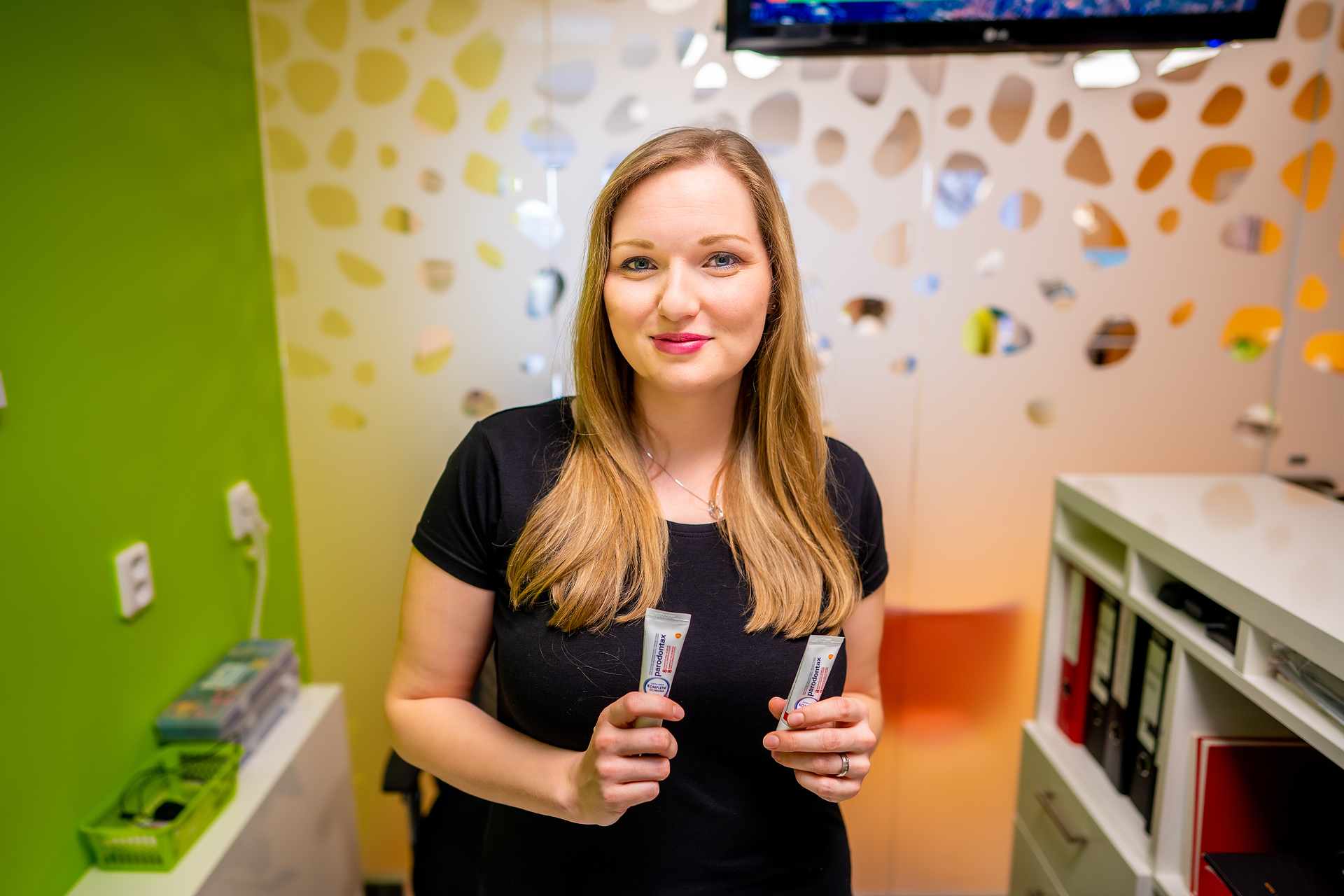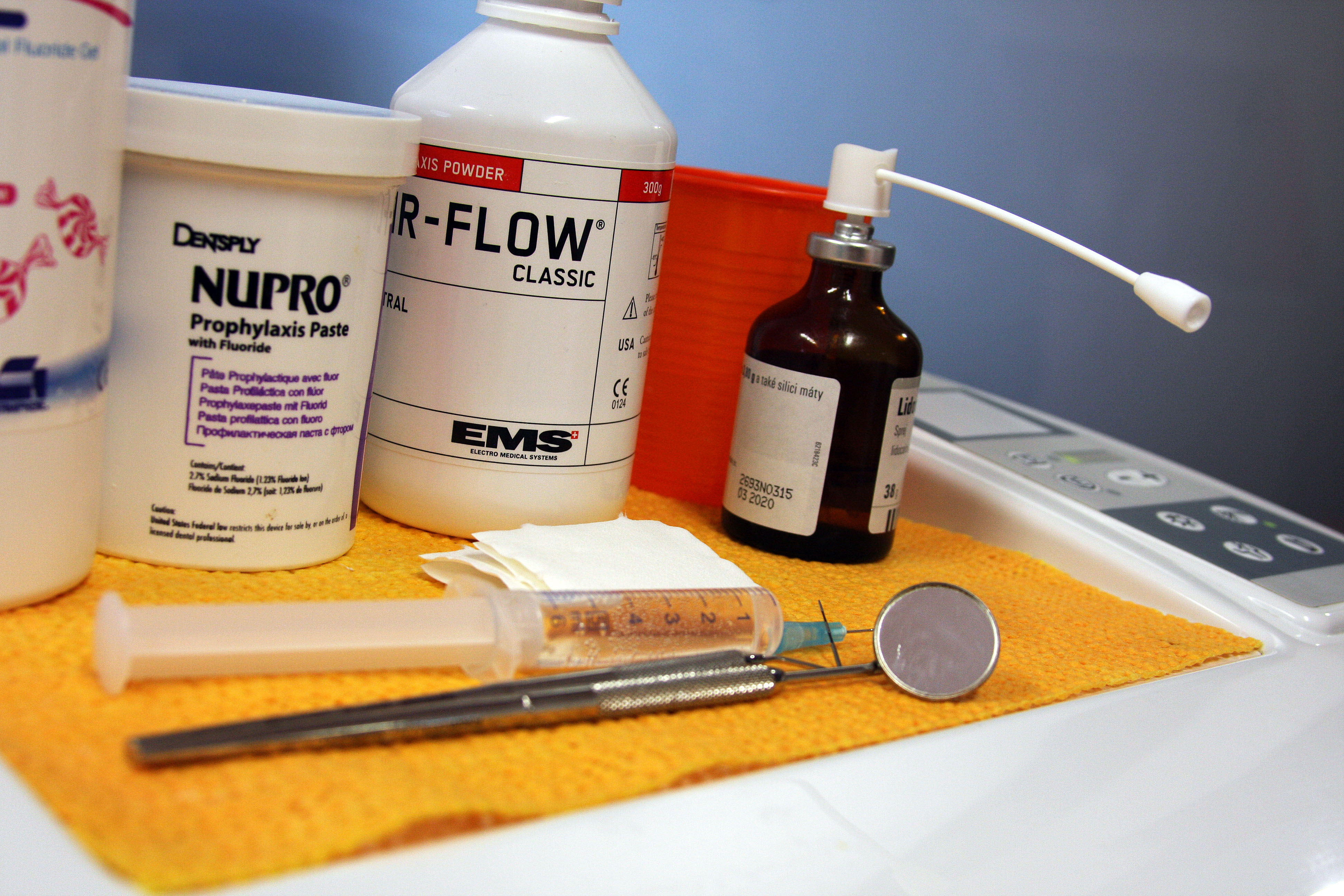Tooth decay is currently the most common infectious disease. The tooth tissue is disrupted by bacteria in our mouth cavity. We are able to turn back an impact of tooth decay in its early stage by changing our dental hygiene and eating habits. Therefore we lay great emphasis on dental hygiene.
Teeth brushing practising
Teeth brushing seems easier than it really is. The mouth cavity has its nooks which are often omitted during our daily teeth brushing. Teeth brushing practising is a part of our dental hygiene. We will choose fitting aids for you, recommend you the best toothbrush as well as technique, intensity and length of the teeth brushing. We will also measure the size of your interdental space and show you how to clean it with the interdental brush. Moreover, we can recommend a right type of the mouthwash.
Dental hygiene is performed by dentists in our facility and the anaesthesia can be offered patients with higher dental sensitivity.
The undisputable advantage of dental hygiene performed by the dentist is that he is able to plan out the teeth recovery according to results of dental hygiene. Bleeding gums complicate the final quality and aesthetic of white fillings and untreated inflammation usually leads to the bone decrease.

What is the aim of dental hygiene?
The aim of teeth brushing is to remove dental plaque and tartar, which can be carried out with several possibilities:
- Depuration - a rotating toothbrush with an abrasive toothpaste is used to remove plaque and tartar
- Air-flow - sandblasting - painless mechanical removal with the flow of air and sodium bicarbonate particles. This will remove plaque and pigmentation and the result are smooth, clean and bright teeth.
- With the sonography or Newtron - new technology of ultrasound cleaning with a different frequency which makes it less painful.
An important complement is a fluoridation. Fluor will heal the tooth enamel up and increase its resistance against acids and therefore it will less likely suffer from tooth decay. It is better to do fluoridation repeatedly. It is recommended by patients with higher tooth decay rate or after more dental treatments. Fluoridation should be carried out only after complete dental plaque removal which increases its effectiveness.





